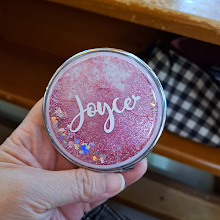The WHO Well-Being Challenge aims to help us increase our well-being in three specific areas to support us in improving our general health and well-being. The three areas are:
1. Stress less, where we learn simple stress management techniques.
2. Eat Better, where we can improve our health and well-being by making small changes to our eating habits.
3. Move more, where we improve our physical health by simply walking.
#1: Stress Less - Doing What Matters in Times of Stress
Stress is a natural human response that makes us react to challenges and threats in our lives. It basically means feeling troubled or threatened. Everyone experiences stress to some degree at times. A little stress can be good and it's generally not a problem. However, too much stress can cause issues to physical and mental health. It's the way we respond to stress that makes a big difference to our overall well-being.
According to WHO, there are 5 skills which are easy to learn and can be used for just a few minutes each day to help us reduce stress.
Grounding, Unhooking, Acting on Values, Being Kind, Making Room
I won't go into details but I'll highlight the key points. If you want to read the full details, do visit http://bit.ly/WHOStressManagement
Here's an example that WHO used to describe how to apply the 5 skills.
First, notice how you're feeling and what you're thinking. Then, you breathe into the difficult thoughts and feelings, and let the breath flow into and around them. This is the grounding step.
If you're feeling pain or having difficult thoughts (this means you're hooked), notice it with curiosity. Notice its shape, size, and temperature, and silently name it - "I notice here's a difficult thought". Your pain might get bigger or smaller; it might stay or it might go. Then, you refocus on what you're doing at the time the difficult feelings emerge. This is the unhooking step.
There are three approaches when it comes to dealing with difficult situations. Number one, leave. Number two, change what can be changed, accept the pain that cannot be changed, and live by your values. Number three, give up and move away from your values. This is the acting on values step.
Even in the most difficult situations, there are ways we can act on our values of kindness and caring. Even tiny little actions of kindness can make a difference. This includes kind words. Not just for others, but for ourselves, too! Try speaking to yourself kindly. When you're kind to yourself, you'll have energy to be kind to others too. This is the being kind step.
Finally, the aim of all the steps above is to simply make room, to allow the difficult situation to be there, to stop fighting it, and to give it space.
The key is to practice until we're familiar about dealing with stressful situations in our life.
#2: Eat Better - Good Nutrition Reduces the Likelihood of Developing Health Problems
The four important principles for eating better are as follows.
Eating a mix of foods for a healthy you
To stay healthy, it's important to eat different types of food every day. Include different kinds of foods like a variety of fruits and vegetables, whole grains (unprocessed maize, millet, oats, wheat and brown rice), legumes (lentils, beans and peas), and animal products (lean meat, fish, eggs, and low-fat and unsweetened dairy products) in your diet every day.
Keep an eye on your salt intake
Don't eat more than 5 grams a day, which is equal to just one teaspoon. Cut back on salty sauces and condiments. Watch out for canned and dried foods, they are usually very high in sodium. Eat fewer processed foods. Always read the labels on food products to be aware of the amount of hidden sodium.
Limit fats, oils and sugar
Swap butter, ghee, and lard with healthier oils like olive, soybean, sunflower, or corn oil. Go for chicken or fish instead of fatty red meat. Choose low-fat or reduced-fat milk and dairy products. Don't eat too much processed meat. Stay away from foods that have bad fats (trans fats) - these are often found in fried and baked goods. Try cooking your food by steaming or boiling instead of frying. Cut back on sweets and sugary drinks. Pick fresh fruits instead of sugary snacks like cookies and cakes.
More water, less alcohol
Choose water when you can instead of those sugary drinks. Water is safe and doesn't cost much. Drinking alcohol can lead to injuries, liver damage, cancer, heart issues, and even mental health problems. There's actually no safe amount of alcohol. So, it's best to avoid it altogether for a healthier lifestyle. In summary, prioritize hydration with water and abstain from alcohol for better overall health.
#3: Move More - Regular Physical Activity is Good for Our Heart, Body and Mind
Make physical activity a priority, as it benefits our heart, body and mind, prevents and manages diseases such as cardiovascular diseases, cancer and diabetes, and reduces symptoms of depression and anxiety.
Starting with walking 10 minutes a day
WHO recommends walking 10 minutes a day for people who are just getting started in their physical activity routine. Once you're more comfortable with walking daily, it is recommended to do 30 minutes of exercise every day.
Set aside just 10 minutes each day. Walking - at any pace - is incredibly good for you! When you start to walk, pick a speed you can manage. Walking, no matter how fast, is good for you. Choose a pace that feels comfortable. Make being active a priority to feel healthier and happier. Think about tomorrow and find a good time for a short walk. Every minute you walk is a step toward feeling even better! Find what works best for you! Remember to write down how many minutes you walk each day.























No comments